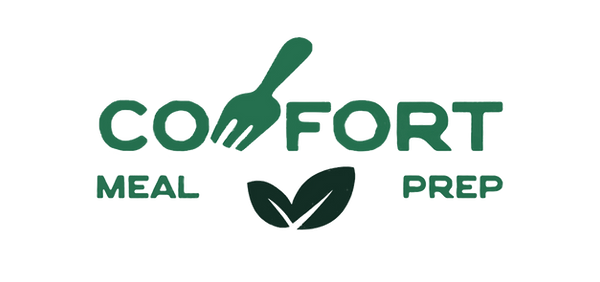Nutritional Tips for Effective Meal Prepping at Home
- Damon Joiner
- Sep 20
- 4 min read
Meal prepping is a fantastic way to save time, eat healthier, and reduce food waste. It allows you to plan your meals in advance, ensuring you have nutritious options ready to go. Whether you are a busy professional, a parent, or just someone looking to eat better, meal prepping can be a game changer. In this post, we will explore some essential nutritional tips to help you get the most out of your meal prep efforts.
Understanding the Basics of Meal Prepping
Before diving into the tips, it is important to understand what meal prepping entails. Meal prepping involves preparing meals or ingredients in advance to make cooking easier during the week. This can include cooking entire meals, chopping vegetables, or portioning out snacks.
Benefits of Meal Prepping
Saves Time: By preparing meals in advance, you can save time during the week. No more scrambling to figure out what to eat after a long day.
Promotes Healthier Eating: When you have healthy meals ready to go, you are less likely to reach for unhealthy options.
Reduces Food Waste: Planning your meals helps you use ingredients efficiently, reducing the chances of food going bad.
Saves Money: Buying ingredients in bulk and preparing meals at home can save you money compared to eating out.
Planning Your Meals
The first step in effective meal prepping is planning your meals. This involves deciding what you want to eat for the week and creating a shopping list.
Choose Balanced Meals
Aim for meals that include a balance of protein, carbohydrates, and healthy fats. Here are some examples:
Breakfast: Overnight oats with Greek yogurt, berries, and nuts.
Lunch: Grilled chicken with quinoa and steamed broccoli.
Dinner: Baked salmon with sweet potatoes and asparagus.
Create a Shopping List
Once you have your meals planned, create a shopping list. This will help you stay organized and ensure you have everything you need.
Tip: Organize your list by category (fruits, vegetables, proteins, etc.) to make shopping easier.
Preparing Ingredients
Now that you have your meals planned and your shopping list ready, it is time to prepare your ingredients.
Wash and Chop Vegetables
Washing and chopping vegetables in advance can save you time during the week. Store them in airtight containers in the fridge to keep them fresh.
Cook Proteins in Bulk
Cooking proteins in bulk can be a huge time saver. Grill or bake several chicken breasts, roast a large piece of beef, or prepare a big batch of beans.
Tip: Season your proteins differently to keep meals interesting throughout the week.
Portioning Your Meals
Portioning your meals is a crucial step in meal prepping. This helps you control your serving sizes and makes it easy to grab a meal on the go.
Use Clear Containers
Invest in clear, airtight containers to store your meals. This allows you to see what you have at a glance and keeps your food fresh.
Label Your Meals
Labeling your meals with the date and contents can help you keep track of what you have and when it needs to be eaten.
Storing Your Meals
Proper storage is key to keeping your meals fresh and safe to eat.
Refrigerate or Freeze
Decide which meals you will eat within a few days and which ones you want to freeze.
Tip: Most cooked meals can be stored in the fridge for up to four days. If you want to keep them longer, freeze them.
Use the Right Containers
Make sure to use containers that are freezer-safe if you plan to freeze your meals. This will prevent freezer burn and keep your food tasting great.
Reheating Your Meals
Reheating meals properly is essential to maintain their taste and texture.
Use the Oven or Stovetop
Whenever possible, reheat your meals in the oven or on the stovetop. This helps retain moisture and flavor.
Tip: If using a microwave, cover your food to prevent it from drying out.
Check Temperature
Always ensure your meals are heated to a safe temperature before eating. This is especially important for proteins.
Staying Motivated
Meal prepping can sometimes feel like a chore. Here are some tips to keep you motivated.
Experiment with New Recipes
Trying new recipes can keep your meal prep exciting. Look for healthy recipes online or in cookbooks that inspire you.
Involve Family or Friends
Get your family or friends involved in meal prepping. It can be a fun activity and makes the process more enjoyable.
Conclusion: Embrace the Meal Prep Lifestyle
Meal prepping is not just a trend; it is a lifestyle that can lead to healthier eating habits and a more organized life. By following these nutritional tips, you can make meal prepping a breeze. Remember to plan your meals, prepare ingredients in advance, and store them properly. With a little effort, you can enjoy delicious, nutritious meals throughout the week without the stress of last-minute cooking.

By embracing meal prepping, you are taking a significant step towards better health and well-being. So gather your ingredients, put on your favorite playlist, and start prepping. Your future self will thank you!



Comments